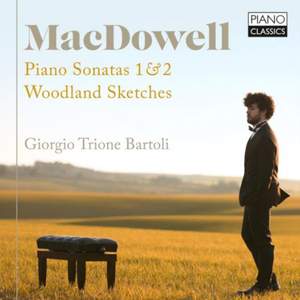A multiplicity of cultural influences makes the figure of Edward MacDowell (1860-1908), an American pianist-composer trained for a long time in Europe, particularly original. Born in New York, he received his first lessons from Colombian, Cuban and Venezuelan musicians, including the famous pianist Teresa Carreño. At the age of seventeen, MacDowell continued his studies at the Paris Conservatory, in Antoine Marmontel's class, and then at the Frankfurt Hochschule, where he studied composition with Joachim Raff. He was listened to by Clara Schumann and Franz Liszt, and was introduced by the latter to the publisher Breitkopf & Härtel in Leipzig. In 1888 he returned to the United Sates where he settled in Boston, combining his work as a composer with that of a concert pianist. When he moved to New York in 1896, he also taught at Columbia University, where MacDowell was the first to create a music department. In the same year, 1896, the MacDowells bought a farm in New Hampshire, an ideal place to pursue musical creativity in a peaceful rural setting. Much of MacDowell's compositional output dates from this happy period, including two piano concertos, two orchestral suites, four symphonic poems, several piano suites, Songs, four piano sonatas and numerous piano transcriptions of 18th-century music.
Macdowell’s sources of inspiration are to be found in German romanticism, both poetic (Goethe, Heine) and musical (Mendelssohn, Schumann and Brahms), combined with a predilection for Nordic sagas, establishing a Celtic Revival (MacDowell's had Irish and Scottish origins). The Woodland Sketches show the composer at his best: charming, enchanting, elegiac and nostalgic character pieces, reminiscent of Grieg and Schumann.
Giorgio Trione Bartoli (born 1996) graduated with honors at the "Santa Cecilia" National Academy in Rome with Maestro Benedetto Lupo. He is prize winner of many piano competitions, o.a. the Premio Venezia.



